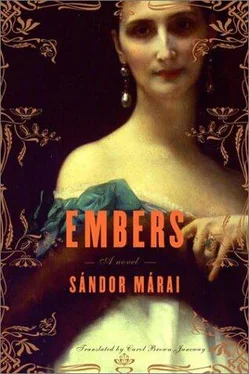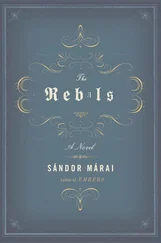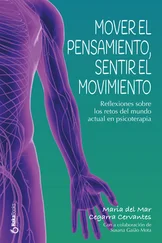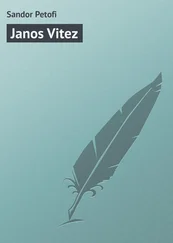“Later, at the end of our honeymoon, we went to this spa town to find the sanitarium, because Krisztina wanted to see the room where her mother had died.
“We arrive in Arco one afternoon in an automobile, after driving along the shores of Lake Garda in a drift of the scents of flowers and orange trees. We stop in Riva and that afternoon we go over to Arco. The countryside is silver-gray, as if covered in olive groves. High above is a fortress, and hidden in the warm, misty air between the cliffs is the sanitarium. There are palm trees everywhere, and the light is so delicately hazy that it is like being in a greenhouse. In the stillness, the pale-yellow building where Krisztina’s mother spent her last years looks mysterious, as if it were home to all the sadness that can afflict the human heart, and as if heart disease itself were the consequence of the disappointments and incomparable misfortunes of the world that were lived out here in silence. Krisztina walks around the house. The silence, the scent of the thorny southern plants, the warm, sweet-smelling haze that envelops everything like a linen bandage for damaged souls, all this moves me deeply, too. For the first time, I sense that Krisztina is not totally with me, and from somewhere far, far away, at the beginning of time, I hear the wise, sad voice of my father, and it’s speaking of you, Konrad.” For the first time he utters the name of his guest, without anger, without agitation, in a tone of neutral courtesy. “And the voice is saying you are not a real soldier, you are another kind of man. I do not understand, I still don’t know what being different means … it takes a long time, many lonely hours, to teach myself that it is always and exclusively about the fact that between men and women, friends and acquaintances, there is this question of otherness, and that the human race is divided into two camps. Sometimes I think these two camps are what define the entire world, and that all class distinctions, all shades of opinion and all variations in power relations are simply variants of this otherness. So just as it is blood alone that binds people to defend one another in the face of dange r, on the spiritual plane one person will struggle to help another only if this person is not ‘,’ and if quite aside from opinions and convictions they share similar natures at the deepest level … “There in Arco I understood that the celebrations were over, and that Krisztina too was ‘.’ And I remember the words of my father, who was not a great reader of books, but whom loneliness had taught to recognize the truth; he knew about this duality, he too had met a woman whom he loved profoundly but at whose side nonetheless he remained alone because they were two different people-for my mother, too, was ‘,’ just as you and Krisztina are … And in Arco something else became clear to me, as well. The feeling that bound me to my mother and to you and to Krisztina was always the same, a longing, a hope in search of something, a helpless, sad yearning. For we always love the ‘,’ we always seek it out, no matter what the circumstances and sudden changes in our lives … The greatest secret and the greatest gift any of us can be offered is the chance for two ” people to meet. It happens so rarely-it must be because nature uses all its force and cunning to prevent such harmony-perhaps it’s that creation and the renewal of life need the tension that is generated between two people of opposite temperaments who seek each other out. Like an alternating current … an exchange of energy between positive and negative poles, think of all the despair and the blind hope that lie behind this duality.
“In Arco I heard my father’s voice and understood that I had inherited his fate, that I was of the same kind he was, whereas my mother, you, and Krisztina stood on the far bank beyond our reach … One can achieve everything in life, wrestle everything around one to the ground, life can offer up every gift, or one can seize them all for oneself, but one cannot change another’s tastes or inclinations or rhythms, that essential otherness, no matter how close or how important the bond. That is what I feel for the first time in Arco as Krisztina is walking around the house in which her mother died.”
Ie, He lets his head drop, leaning his forehead on his hand with the gesture of helpless resignation of a man finally faced with the evidence of the intractability of human relations. “Then we come home from Arco and start our lives here,” he says, “The rest you know. It was you who introduced me to Krisztina. You never let drop the slightest hint that you were interested in her yourself.
Our meeting, to me, was unmistakably the most significant thing that had ever happened to me. She was of very mixed descent, with German, Italian, and Hungarian blood in her veins. Perhaps also a trace of Polish, on her father’s side of the family … she was quite uncategorizable, beyond race or class, as if nature for once had tried to create a self-sufficient, independent, free creature untrammeled by family or social position. She was like an animal: her protected upbringing, her boarding school, her father’s culture and delicacy, had all shaped her behavior, but underneath she was wild and untamable.
Everything that I could give her, my fortune and social position, was really not of great importance to her, and because of her need for freedom, which was so fundamental, she could not make herself a part of my social world … Her pride, which was quite different from that of people who parade their position, their family ties, their wealth, their place in society, or their particular personal talents-Krisztina’s pride rested on her splendid independence, which coursed in her as both an inheritance and a poison. She was, as you well know, an inborn aristocrat, and that is something very rare these days: you find it as seldom in men as in women. It is not a question of family or social position. It was impossible to offend her, there was no situation from which she shrank, she tolerated no kind of limitations. And there was something else that is rare in women: she understood the responsibility to which she was committed by her own inner sense of self Do you remember-yes, of course you do — our first meeting in the room with the table where her father’s music sheets lay: Krisztina came in, and the little room was filled with light. She didn’t just bring youth with her, she brought passion and pride and the sovereign self-confidence of her unsuppressed nature. Since then I have never met a single person who responded so completely to everything: music, an early morning walk in the woods, the color and scent of a flower, the well-chosen words of an intelligent companion. Nobody could stroke a beautiful piece of cloth or an animal like Krisztina. Nobody took such pleasure in the world’s simple gifts: people, animals, stars, books — everything interested her, not in any exaggerated way, not with a pedantic outpouring of learning, but with the unprejudiced joy of a child reaching for everything there is to see and do. As if everything in the world was relevant to her, you know? Yes, you do know … She was unprejudiced and open and humble because she recognized what a blessing life was. I still see her face sometimes,” he says confidingly.
“You won’t find any portrait of her in this house, there are no photographs of her, and the large painting of her done by the Austrian, which used to hang between the portraits of my parents, has been taken down. No, you will not find any picture of her here anymore,” he says, with a kind of satisfaction, as if reporting on a small act of heroism.
“But sometimes I still see her face when I’m half asleep, or when I walk into a room. And now, while we’re talking about her, we two who knew her so well, I see her face as clearly as I did forty-one years ago, on that last evening as she sat between us. For you know, that was the last evening that Krisztina and I dined together. Not only was it your last dinner with Krisztina, it was mine also. That was the day when everything happened that was inevitable between the three of us. And as we both knew Krisztina, certain decisions were inevitable: you left for the tropics, Krisztina and I did not speak again. Yes, she lived for another eight years. We both lived here under one roof, but we could no longer talk with each other,” he says calmly, and looks into the fire.
Читать дальше












